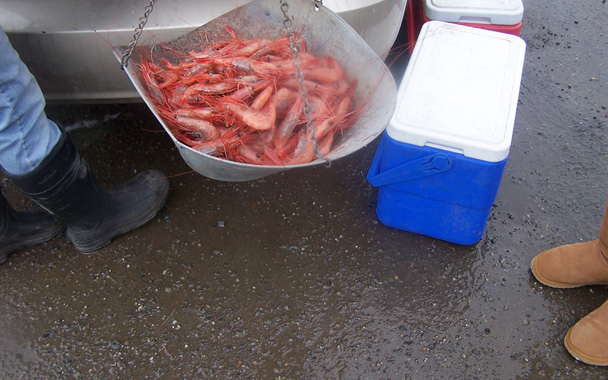Today I was planning to wax homeric about a winter treat found only here in coastal Maine, but first I must celebrate our current whiteout. Throughout Sunday and the following night, a heavy, sticky snow smothered most of our state, leaving many without power, including us. All good Mainers—whether “real” ones, meaning your family has been here for three generations or more and you have at least one broken car, riding lawn-mower, and boat in your yard year-round, or those of us “from away,” meaning thin-blooded interlopers who will never fit in no matter how well they say “ay-yuh” and how many of the aforementioned yard accoutrements they might possess—have a generator and a wood stove for such situations. And although we’ve now been without power-company electricity for 36 hours, this is still only a situation, not an emergency. The reason I like our situation, which includes melting snow to flush toilets, stumbling over an octopus of extension cords originating from the basement generator, as well as hours of backbreaking shoveling, is because we’re spending less than we normally do.
“Huh?” you might wonder.
Well, even after unplugging the dryer, becoming hyper-vigilant about turning off lights, wrapping the hot-water tank with a fiberglass blanket and disconnecting unused appliances, we’ve been spending $6 to $8 a day on electricity and slightly more per day on heating oil, all because we live in a “splanch” style home, designed (and I use that term loosely) for the South. Our basic utilities run a grand total of roughly $18 per day. However, during our current situation I can’t turn on the oil furnace for a couple of hours to supplement the wood-stove heat and, of course, we’re not using any electricity from the power company. As a result of Mother Nature’s whimsy, we’re saving roughly $8 every 24 hours. (It’s not the entire $18 because running the gas-powered generator costs about $10 a day.)
Speaking of the good Mother—and returning to my original topic—she provides one wondrous gift beyond money-saving opportunities during the dead of winter: Pandalus borealis, or the less-magnificent-sounding Maine shrimp. For those of you not in the know, these cold-water crustaceans are a firm, tasty treat that migrate inshore every winter to spawn and get caught by local fishermen.
While most of the shrimp make their way to Maine supermarkets, well-connected fishmongers around the country, and the larders of sushi chefs everywhere to be served up as ama ebi (sweet shrimp), the rest find themselves alongside Maine’s highways and byways, selling for as little as $1 a pound—the current rate out of our saleslady’s hatchback. They’re about half shell, half meat, and after spending an hour peeling three to four pounds, you end up with some delicious, inexpensive protein. While I generally prefer shrimp from the Gulf of Mexico, Pandalus borealis excel as popcorn shrimp and in ceviche. Because we couldn’t fly off somewhere warm this past week for winter break, we decided to bring the Caribbean to us. We cranked up the heat on the wood stove. Squeezed half a dozen limes from our grocery’s reduced-price produce rack. Tossed the shrimp with some chopped cilantro, garlic, and onions and shook our hips to a little La Bamba. A few hours later, noshing on marinated shrimp from a large bowl, admittedly we had not transported ourselves back to a 2007 Thanksgiving vacation on the remote island of Holbox, off the Yucatán Peninsula, but almost. We did, however, eat something delicious while getting a heavy dose of vitamin D. Shrimp are bloated with this bone-building substance, providing 129 IUs (International Units) per ounce, out of a suggested daily 200. The earth may turn her back on the sun, robbing us of this vital nutrient during the winter months, but she then delivers it via the alternative form of Pandalus borealis.
It’s all just one big Give-and-Take. No power, more money. Bye-bye sun, hello shrimp. Arriba, arriba!
Cords of free wood burned this winter: 4 1/2
Gallons of heating oil used this winter: 260
Gallons of heating oil used last year: 1800
Total eggs provided by 19* 20-week-old hens: 10
Cost of said eggs (thus far): $227**
*There were originally 27 chicks. Two were smothered by their mates. Two are roosters. And we just sold 4 for $20 to some friends whose hens stopped laying.
**The chicks originally cost $48. We’ve shelled out $108 on feed, $34 on a waterer, $17 on hay and wood shavings, and about $20 on electricity for the heat lamp we had in the hen house until it burned out—for a grand total of $227 laid out by us. Since selling 4 hens for $20, we’re starting to peck away at the total and are now only out $207. They’ll all be laying within a few weeks and will have paid for themselves (by the kids selling the eggs) come summer. The best-laid plans….




 Pinterest
Pinterest


